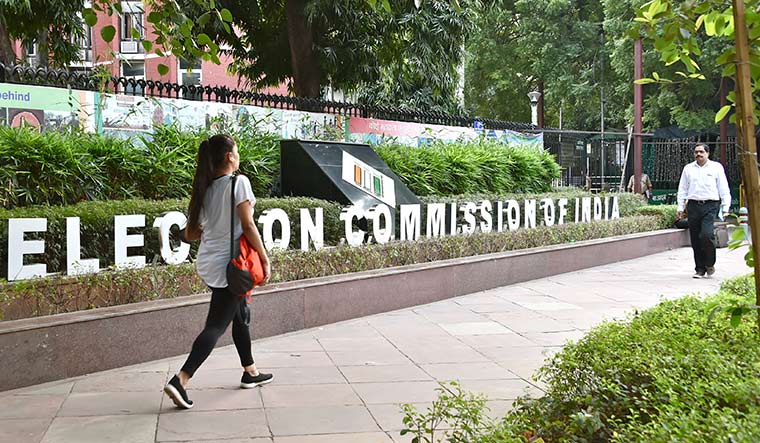In the wake of criticism over its plea before the Supreme Court with regard to limiting reporting of court observations by the media and reports that there was a divide within the poll body with regard to the prayer before the court, the Election Commission on Wednesday said it was unanimous that there should be no restriction on media reportage.
The Election Commission said it has taken note of the recent narrative relating to its position with regard to media, and noted that it had come across certain press reports in this regard.
In the wake of reports that the Election Commission was split down the middle with regard to the plea before the court regarding reporting by the media of observations made by the court, the poll body said it always has appropriate deliberations before any decisions are taken. Following the retirement of Sunil Arora as the chief election commissioner on April 12, the Election Commission, supposed to be a three-member body, is headed by CEC Sushil Chandra and the other member is Election Commissioner Rajiv Kumar.
“In the context of involvement of media, the Commission wishes to clarify that it stands sincerely committed to its faith in free media,” the EC said in a statement.
“The Commission as a whole and each one of its members recognise the positive role played by media in the conduct of all elections in the past and present and in strengthening electoral democracy in the country,” it said.
The EC stressed that it was unanimous that before the Supreme Court that there should not be any prayer for restriction on media reporting.
It further said that the Election Commission very specially recognises media’s role in enhancing effectiveness of election management and in reinforcing transparency from the very beginning of election process till the end, including transparent coverage during all processes, campaigning and from polling station level to counting.
“ECI’s approach on the collaboration with media is that of a natural ally and remains unchanged,” it said.
The Election Commission has been facing intense criticism with regard to its role in the conduct of Assembly elections in West Bengal, and has been criticised for its alleged failure in ensuring COVID-19-appropriate behaviour during the electioneering.
It had approached the Supreme Court against “blatantly disparaging remarks” made by the Madras High Court with regard to holding elections during a pandemic. The High Court had made an observation on April 26 that the Election Commission “should probably be booked for murder” for failing to ensure that there was no crowding during the election campaign.
The Election Commission had in a statement tried to stress that the remarks made by the High Court, widely reported by the media, were not a part of the court's order.
In its plea before the Supreme Court, it said the oral observations made by the High Court had “dented the institution” and sought restrictions on the media's coverage of court observations.
also read
- Here are the 5 questions Supreme Court asked ECI on EVM, VVPAT and control unit
- How the Election Commission is planning to woo voters after low turnout in Phase 1
- ‘Important first step’: Congress on SC notice to Election Commission on counting VVPAT slips
- ‘Remain careful in public utterances’: EC censures BJP's Dilip Ghosh, Cong's Supriya Shrinate
“Media is a powerful watchdog in democracy. It cannot be stopped from reporting discussions in higher courts. Seeking relief such as media should not report on observations is too far-fetched,” a Supreme Court bench comprising Justices D.Y. Chandrachud and M.R. Shah observed on May 3.





